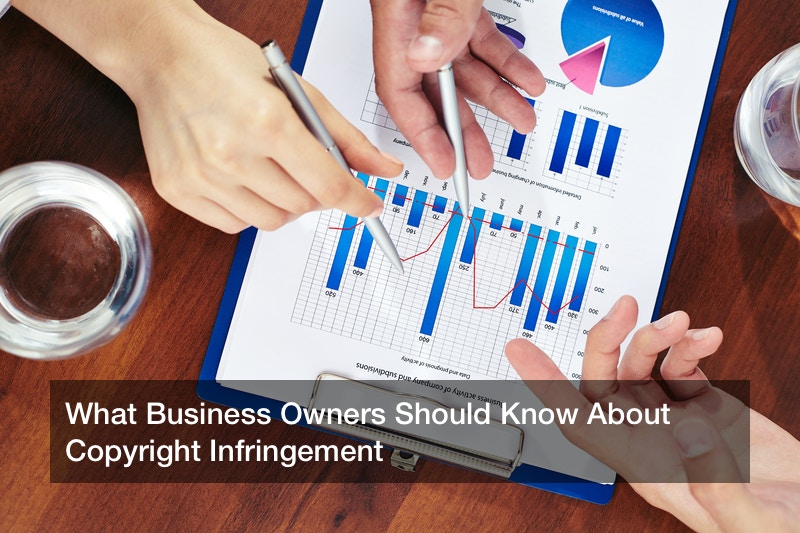Small businesses (defined as businesses with fewer than 500 employees) account for 99.7% of all business in the United States. Owning and managing a business takes a lot of work. It has been estimated that each individual office worker in the U.S. uses about 10,000 sheets of paper per year. Fortunately, technology has made being a business owner much easier. For example, 97% of companies that use field service management software said it was beneficial to their business operations. One great tool all business owners have access to is the Internet. And while the Internet can be really awesome, it can be dangerous in some cases too. This is true when it comes to serious issues like copyright infringement. So to help you avoid violating copyright laws, let’s take a look at a few important things all business owners should know about copyright infringement.
What Exactly Is Copyright Infringement?
When you find something on the Internet, whether it’s a picture, content, or other materials, and use them without the owner’s permission, this is copyright infringement. This can range from simply using a photo from Google on your website to copy and pasting content from another site and selling it as your own. When someone is a copyright holder, which means they’ve paid to legally claim the image or material as their own, they have the right to collect money when their material is used by someone else. There are a lot of laws in place to protect companies’ material and even information, like the Defend Trade Secrets Act of 2016. Damages that can be collected per infringement can range from a few hundred dollars to hundreds of thousands, depending on the material and how it was used.
When Can You Use Someone Else’s Work?
Not all information or images on the Internet are copyrighted. This means there are cases where you can use someone else’s work, especially since 90% of American adults use the internet. These cases include titles, slogans, government publications, common information, names, and slogans. So for instance, there could be several books with the same title, because that title is not copyrighted. But it’s important to remember that just because something is on the Internet for public use, that doesn’t mean you can use it as your own work. Most sites have a copyright notice on display to let you know the material has been copyrighted. But as good practice, you should always assume something is copyrighted and reach out to the owner to ask if their material can be used with proper credit given to them.
Should You Be Protecting Your Own Materials?
In the United States, legal copyright ownership is given for appropriate material, whether it’s paid for or not. So while you technically don’t need to pay for copyright ownership, it’s always a good idea. Registering copyright of material doesn’t cost a lot and is pretty easy to do. This means that if you have material that truly matters to you, whether it’s a photograph you took or an article you wrote, you should consider filing for legal copyright protection. Almost everyone around the world uses the Internet and finds it important. In fact, a 2013 Air Travel Survey found that 25% of respondents would choose an airline with WiFi over another without Internet. This goes to show how important Internet is to people and how frequently it’s used. So if there is something you’ve posted online that is of great value to you, get the legal protection.
Copyright laws can be complex but it’s important to understand them. All business owners should understand what work can and cannot be used if it belongs to another person so they can avoid a copyright infringement lawsuit.



